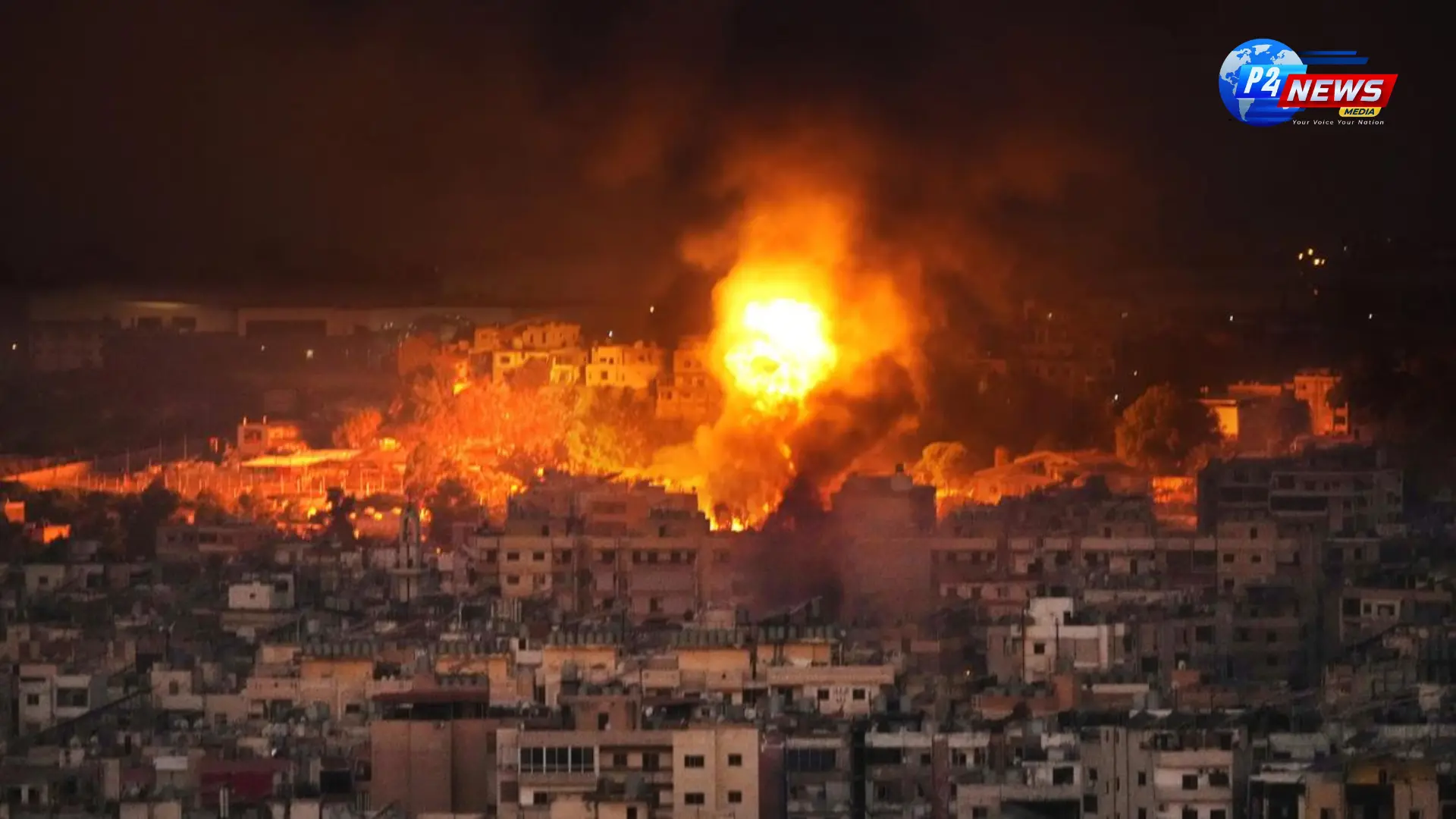Intense Israeli airstrikes have shaken southern Beirut, targeting Hezbollah, leading to fears of leadership losses and escalating tensions in the region.
Intense Israeli airstrikes have shaken southern Beirut, targeting Hezbollah, leading to fears of leadership losses and escalating tensions in the region.
Israeli fighter jets executed a series of airstrikes on southern Beirut late Saturday, escalating violence in the region and raising grave concerns about the implications for Hezbollah's leadership. The Lebanese National News Agency reported that the strikes continued into early Sunday morning, creating a chaotic atmosphere.
The sound of explosions reverberated across southern Beirut for over two hours, with eyewitness reports detailing fireballs and thick smoke billowing from targeted locations. Residents were seen fleeing in panic, some escaping on foot while others used motorbikes to navigate the chaos.
The Israeli Defense Forces (IDF) confirmed their operations, stating via Telegram that they aimed to dismantle Hezbollah’s infrastructure. Prior to the attacks, the Israeli military had instructed residents in southern Beirut to evacuate, advising them to move at least 500 meters away from specific buildings deemed targets.
This latest escalation is a continuation of rising hostilities between Hezbollah and Israel, which have experienced almost daily exchanges of fire over the past year in the context of the Gaza war. Since September 23, Israeli airstrikes have reportedly resulted in over 1,110 fatalities and displaced more than a million people in Lebanon. Just last week, a significant strike targeted Hezbollah leader Hassan Nasrallah, killing him.
According to a senior Hezbollah source, communication with Hashem Safieddine, a key figure poised to succeed Nasrallah, has been lost after recent Israeli airstrikes. While Hezbollah has not officially verified this, two insiders indicated that attempts to reach Safieddine were hindered by ongoing bombings. He was reportedly with Hezbollah's head of intelligence during the strike.
The recent airstrikes mark a critical uptick in Israel's military campaign against Hezbollah, with reports of 11 consecutive strikes documented on Hezbollah strongholds in southern Beirut early Friday. Israel has claimed success in targeting Hezbollah's intelligence headquarters within the city.
In addition to the conflict’s escalation in Lebanon, Israel is braced for increased tensions correlating with the upcoming anniversary of the Hamas attack on October 7. The Israeli military has ramped up its forces and alert status in anticipation of potential retaliatory strikes from Hezbollah or support from Iranian forces. Iran has already initiated missile assaults in retaliation for Israeli maneuvers.
Israeli forces have reportedly killed around 440 Hezbollah fighters in various ground and air operations since the onset of this escalation. These strikes aim to mitigate Hezbollah’s capability to launch rocket attacks that have disrupted northern Israel for nearly a year, resulting in the displacement of tens of thousands of Israeli residents. Additionally, in response to the rising hostilities, the United States has evacuated approximately 600 of its citizens from Lebanon, with efforts including flights organized by the US State Department.
This ongoing conflict has not only affected military leaders but has also taken a heavy toll on civilians caught in the crossfire. The ramifications of these airstrikes extend beyond immediate casualties, influencing the broader geopolitical landscape and stability in the region.
Like
Dislike
Love
Angry
Sad
Funny
Pray
'Trump Tracker: Tulsi Gabbard's Surprising Appointment as US Intelligence Chief
November 14, 20249th Ayurveda Day in Melbourne: A Celebration of Ayurvedic Innovations and Global Health Impact
November 10, 2024🍪 We Value Your Privacy and Experience Hi there! We use cookies to enhance your browsing experience, provide personalized content, and analyze site traffic. By continuing to use our site, you consent to our use of cookies.







Comments 0